Here are some quick notes from my trip to Austin Texas for the Indoor Air 2011 meeting.
About the meeting:
I got involved in helping organize a session at this conference as part of my microBEnet project. More on the planning and the meeting later but here are some quick notes just to get them out there. I wrote a bit about the run up to the meeting in the following posts:
- Indoor Air 2011 coming up in Austin, TX — still time to sign up …
- Reminder — Indoor Air 2011 coming up June 5-10 Austin TX …
- Indoor Air 2011; Austin, Tx; June 5-10 #microBEnet | Microbiology …
- The Tree of Life: Off to #IndoorAir 2011 in Austin, TX – to …
The meeting.
Below are some notes about the trip with twitter posts, pictures, and a few comments. I will post later with some more “scientific lessons learned” and such. But wanted to get this out there before I forgot details.
Headed out June 6.
Was going to head out June 7 but decided to head out late on June 6 so I could get to the meeting a bit earlier. I am posting my tweets below as a guide to the trip. Tweets are highlighted in yellow.
- Sacramento to Las Vegas to Austin to #IndoorAir2011#fb
Had a two plus hour layover in Las Vegas airport. What a horrible place with all the noise, the slot machines, and such. So I finally found a place that was reasonably quiet for dinner. Plus it had the hockey game on so I was happy.
- Off to #IndoorAir 2011 in Austin, TX – to discuss and promote https://microbe.net #microBEnet http://ff.im/-F6NDP
- Apparently – cards never rest in Vegas – many people at restaurant in airport playing cards twitpic.com/5824ni twitpic.com/5824nb
- How to have fun at Vegas airport – sit near security & watch ; apparently what happens in Vegas stays at security
- @PsiWavefunction sorry – you missed the hidden joke – I can’t tell story because what happens at security …. twitpic.com/582r4r
- Wow, on plane about to leave for Austin; southwest attendant moved person out of exit row next to me b/c he was drunk twitpic.com/582uko
- Good call Southwest – keeping planes safe (see last post)
Finally got to the hotel – was very very tired. And I took some pics and went to sleep.
- Ok this is a strange hotel bldg – Airport Hilton in Austin TX #IndoorAir2011 twitpic.com/58ae4k twitpic.com/58ae44 twitpic.com/58ae4j
- More pics of Austin airport Hilton #IndoorAir2011 twitpic.com/58alsi twitpic.com/58altb twitpiccom/58alrw twitpic.com/58alsf
- Learning about affect of copper vs Aluminum surfaces in HVACs on microbial growth: copper seems to control growth better #IndoorAir2011
- Interesting artwork at Austin Convention Ctr -DNA,viruses,space #IndoorAir2011 twitpic.com/58diii twitpic.com/58diim twitpic.com/58diil
- In Austin,TX, had lunch w/ David Hillis & @hyphaltip; saw Norm Pace at #IndoorAir2011; that covers the tree of life #fb #MyWorkIsDone
- RT @stevenkembel Tips for a healthy home #1: keep it clean, dry, pe(s)t free #indoorair2011 #TSCA #NAGP
- Still wondering if #IndoorAir2011 has a policy on tweeting … so not posting much until I find out more
- And there is @ryneches playing with stuff from #IndoorAir2011 product show twitpic.com/58efll
- Heading to session on “where indoor air meets outdoor air” at #IndoorAir2011 – this pic seems appropriate twitpic.com/58egqd
- Yuguo Li, Bill Nazaroff, Hal Levin, Charlie Weschler &; Jan Sundell now discussing continuity between indoor & outdoor air #IndoorAir2011
- Charlie Weschler “Outdoor measurements are useless in exposure analysis? No! Ozone” When outdoor ozone up so is indoor #IndoorAir2011
- Weschler: Why care about ozone? Morbidity and mortality go up when ozone does #IndoorAir2011
- Bill Nazaroff discussing indoor vs outdoor exposures and a tutorial on particles which come in a whole zoo of forms #IndoorAir2011
- Nazaroff working on models to predict indoor exposure from measures of outdoor air #IndoorAir2011
- Having serious jargon/context #fail issues at talks at #IndoorAir2011 tho Nazaroff from Berkeley nearly flawless in being jargon free #wow
- RT @IAQnerd: “43 chemicals found in virtually every pregnant woman” #indoorair2011 #TSCA #NAGP #holisticmoms #healthychild
- My collaborator on microbe.net #microBEnet Hal Levin now discussing microbes indoor/outdoor #IndoorAir2011
- It is funny that at the #IndoorAir2011 sessions there have been troubles with WindowsOS – do indoor air researchers dislike windows?
- Funny notion from speaker at #IndoorAir2011 – windows define buildings as much as doors so why not say we are “Inwindows”
- Speaker at #IndoorAir2011 “Indoor air is much more important than outdoor air” but $$ is in outdoor air – though I & others don’t agree
- @phylogenomics VIA @ryneches Richard Corsi has given us permission to tweet, advises against emulating congressmen. #indoorair2011
- @B_EMC Yuguon Li
- @B_EMC actually I think it was Jan Sundell who said that
And then eventually I headed to dinner with Jason Stajich and took some more pics. We wandered around town a bit before ending up at the Shoreline Grill and David Coil, a post doc from my lab, showed up a bit later to meet us there.
Day 3
Got up reasonably early and took some pics from my room in the AM
Then headed over to the conference center as soon as I could because Craig Venter was on the agenda for the AM session.
- Crowd at #IndoorAir2011 patiently awaiting the arrival of J. Craig Venter who is giving the AM keynote twitpic.com/58nyl9
- J. Craig Venter has arrived for #IndoorAir2011 twitpic.com/58o01f twitpic.com/58o021
- Cool – at #IndoorAir2011 one can submit questions for the speakers on twitter
- Claudia Miller http://drclaudiamiller.com/disclaimer/ is introducing 1st Speaker: Beverly Wright #IndoorAir2011 from http://www.dscej.org/
- Beverly Wright says she is happy to see so many people here this early “I’m a sociologist <pause> we are not that much on time” #IndoorAir
- Beverly Wright showing pics fire from 1980s at refinery – common occurrence in Mississippi River “cancer corridor” #IndoorAir2011
- Speaker Beverly Wright is past winner of the Heinz Award: http://www.heinzawards.net/recipients/beverly-wright #IndoorAir2011
- At #IndoorAir2011 Beverly Wright revisiting the disaster of Katrina #OilSpills #Toxins #PersonalHorror #HomesDestroyed
- Beverly Wright: major problem in Katrina was agency double talk e.g., EPA said city was safe but their samples said otherwise #IndoorAir2011
- Beverly Wright: massive indoor and outdoor mold growth after Katrina; now showing how her own house was trashed #IndoorAir2011
- Beverly Wright: even before Katrina, New Orleans was a moldy city b/c old, wet; says smell in frenchQ is mold; #IndoorAir2011
- Beverly Wright discussing “Disaster Capitalism” e.g., plans to rebuild New Orleans w/o involving residents in the planning #IndoorAir2011
- Beverly Wright re: cleaning up after Katrina “Of course, whenever you do something good, politicians show up” for the pics #IndoorAir2011
- Wright in response to a ?? about lessons learned from Katrina “Put health above all else” #IndoorAir2011
- Next up at #IndoorAir2011, Craig Venter – as an aside his most recent pub is one w/ me on stalking the 4th domain http://tinyurl.com/64rtyvc
- Jesse Ausubel – says there must be meaning in the universe b/c speaker at Indoor Air meeting is named “Venter” #IndoorAir2011
- Ausubel says he is “an advertisement” for Craig Venter and gives a bit of an biography of Craig in 2 minutes #IndoorAir2011
- Ausubel gave a very glowing, flowing, comprehensive, yet remarkably short intro to Craig Venter #IndoorAir2011
- Venter: discussing converting the analog code of DNA into a digital code of data “digitizing DNA” #IndoorAir2011
- Venter used three slides to cover the history of genome sequencing #IndoorAir2011
- Venter predicts in the future companies will pay people to sequence their genomes to get the data #IndoorAir2011
- Venter discussing microbes in mouth says “think about that while the person next to you is coughing, or you are kissing them” #IndoorAir2011
- Venter suggesting that esophageal cancer samples have unique microbial composition – says cause vs effect not known #IndoorAir2011
- Venter: w/ metabolomics can track which chemicals in blood come from human metabolism vs. food vs. bacteria/microbes #IndoorAir2011
- Venter: you are not just who you are and what you eat but also what you feed your bacteria #IndoorAir2011
- Venter: some think his most brilliant discovery was figuring out how to sail around sea and do science at same time #IndoorAir2011
- Venter: emphasizes the #PLoSBiology collection on ocean metagenomics including his/my GOS papers ploscollections.org/article/browse… #IndoorAir2011
- Venter showing reference genome plots of Doug Rusch such as ploscollections.org/article/slides… #IndoorAir2011
- Venter showing Jeff Hoffman sampling frozen lakes in Antarctica – massive amounts of biomass and biodiversity #IndoorAir2011
- Venter saying very low diversity in microbes 1mile deep in ocean/crust — suggests that UV light may be driver of diversity #IndoorAir2011
- Venter: working on air microbes – it was much harder than anticipated and thanks Sloan foundation for their patience #IndoorAir2011
- Venter: very little biomass recovered from indoor air; have to run samplers for long time; but they get contaminated; #IndoorAir2011
- Venter: v. hard to get water clean enough (i.e., without DNA contamination) to use in studying samples w/ very little biomass #IndoorAir2011
- Note – I don’t buy the “UV light” connected to diversity explanation Venter just gave at #IndoorAir2011 – just reporting what he is saying
- @subsurface_life he was not talking about richness but variation among close relatives; says there is less genetic diversity w/in species
- Venter: now looking at samples from the Space Station #IndoorAir2011
- Venter: in New York Indoor Air – the major source of DNA is human; #2 is rodent; microbes are a small % #IndoorAir2011
- Venter: outdoor air in NYC most DNA is rodent, human a bit less than in indoor air #IndoorAir2011
- @subsurface_life millions of reasons other than UV – just posted a separate tweet saying I don’t believe it
- Venter: in NYC there is lots of iron in the outdoor air; “if you are anemic that might be good but otherwise probably not” #IndoorAir2011
- @pzmyers apparently, though unclear how they sampled — did say that at Scripps Pier the #1 signal was insect
- @Toxicpath @pzmyers unclear how the air sampling worked so not sure why they were getting so much rodent/human DNA vs. insect, bacterial
- Venter has now shifted to discussion synthetic biology #IndoorAir2011
- Venter shows a very very simple animation and says “We have this very sophisticated movie to show this” #ScienceHumor #IndoorAir2011
- Venter: creating prokaryotic chromosomes in yeast; waiting for Norm Pace to learn him about “just say no to prokaryote term” #IndoorAir2011
- Venter: says massive growth in population means that new biotech. dvlpmts (e.g., synthetic biology, fuels, etc) are needed #IndoorAir2011
- Venter ends with discussion of ethics and synthetic biology #IndoorAir2011
- They just asked Venter @ryneches twitter question “Can I have your boat?”#indoorair2011
- Now starting session on “Microbiomes of the Built Environment” supported by @SloanFoundation -1st speaker is Bill Nazaroff #IndoorAir2011
- Nazaroff “Newton meets Darwin and the Indoor Microbiome” discussing sociology of science #IndoorAir2011
- Nazaroff quoting John Harte from “Towards a synthesis of the Newtonian and Darwinian worldviews” #IndoorAir2011
- Here is a link to John Harte’s excellent paper on Newtonian vs Darwinian synthesis http://bit.ly/lBrK4C #IndoorAir2011
- Note I worked at RMBL for two summers when John Harte was there – I really like him – and lived w/ his son there #IndoorAir2011
- Nazaroff: successful collaborations come from small groups working on close contact rather than large teams #IndoorAir2011
- Nazaroff: finding ways to keep egos under control is a key issue in scientific collaborations #IndoorAir2011
- Nazaroff: DNA based methods are game changing in Indoor Microbiome studies but we still need to ask the right questions #IndoorAir2011
- Nazaroff discussing work w/ Jordan Peccia looking at microbial surveys in classrooms as well as BIMERC project at Berkeley #IndoorAir2011
- Now up, the one and only Norm Pace – discussing rRNA surveys of human occupied indoor environments #IndoorAir2011 #Oneofmyscienceheroes
- Pace: his job here is to help people transition from whatever microbiology they learned in a past life to modern microbiology #IndoorAir2011
- psgcom #indoorair2011 check out www.microbe.net for more on Sloan Foundation funded work on Microbes of the Indoor Environment #microbenet
- Pace: lots of microbes in tap water (good source of protein) but to understand those microbes you need to use sequences #IndoorAir2011
- Here is a list we made of Sloan Foundation projects on microbes in the built environment microbe.net/grantees/ #microBEnet #IndoorAir2011
- Pace: using fluid impingers to sample air – need ones with massive throughput #IndoorAir2011
- Pace: key point – for studying microbes via DNA cleanliness (i.e., no contaminating DNA) is more important than sterility #IndoorAir2011
- Pace: Indoor air microbiology is mostly about microbes shed by humans #IndoorAir2011
- Pace: key for future of IndoorMicro is bring together people from different fields; that’s why we created https://microbe.net #IndoorAir2011
- Next: M. Taubel on diversity and dynamics of bacteria in house dust #IndoorAir2011
- Taubel: Interested in “hygeine hypothesis” and how exposure to microbes affects asthma, allergy, automimmune dvlpmt #IndoorAir2011 #fb
- @Chris_Evelo Well, don’t forget each human cell has a lot more DNA than each microbial cell (well, for most microbes) #IndoorAir2011
- Taubel referencing bacteria-dust studies in BMC Microbiology 8:56 and J. Allergy Clin Immunol 124: 834 #IndoorAir2011
- Taubel: not going into details of methods b/c 90% of people understand methods and 10% only care about results #IndoorAir2011
- Taubel used a term I have not seen: SLOTUs – species level operational taxonomic units; though I note I 1st read it as SLUTS #IndoorAir2011
- Taubel: mattress dust has lower richness of bacteria (# of species) than floor dust #IndoorAir2011
- Taubel: most of what they find in house dust is similar to microbes found on people #IndoorAir2011
- Next up Denina Hospodsky on size fractionated emissions and microbial populations revealing sources of bacteria in indoor air #IndoorAir2011
- Hospodsky has excellent kids style cartoon showing their model for shedding bacteria from people #IndoorAir2011
- If interested in pubs on “Microbiology of the Built Environment” see (and join) this Mendeley Grp http://bit.ly/mn149p #IndoorAir2011
- Most talks I’ve seen on microbiology in air previously ignored the niches: at #IndoorAir2011 they care about particles, chemistry, etc #cool
- At #IndoorAir2011 the microbial diversity researchers casually switch back & forth between math #notcommonatmicrobiologymeetings
- I like taking pictures of people trying to sneakily take pictures of peoples slides #IndoorAir2011 twitpic.com/58q814
Lew Harriman
- Next speaker is Lew Harriman from a consulting company http://MasonGrant.Com: focused on water availability #indoorAir2011
- Harriman: buildings are designed to be dry, not damp; though I note damp doesn’t always mean bad #IndoorAir2011
- Harriman: measurements of relative humidity usually focus on air but probably should measure on surfaces #IndoorAir2011
- Now up Miia Pitkaranta from Finland: seasonal variation in microbes in buildings & affect of H20 biocenter.helsinki.fi/bi/dnagen/indo… #IndoorAir2011
- Miia Pitkaranta refs on Indoor Microbiology AEM 74:233 & BMC 8: 56 #IndoorAir2011
- Pitkäranta: species richness in dust is very high; ~ 10-20% of species cultivable; phylogenetic diversity of fungi high #IndoorAir2011
- Pitkäranta: spatial variation in microbes in dust from different parts of buildings very high #IndoorAir2011
- Next at #IndoorAir2011 Gunilla Bok: Identification of mould fungi by blast similarity searches and phylogenetic analysis
- Kudos to meeting organizers of #IndoorAir2011 for diversity of speakers: young -> old; diverse country, genders, etc
- Next & last this AM: Alina Handorean on phylogenetic analysis of microbes from bioaerosols from a flooded building #IndoorAir2011
- Hal Levin, my collaborator on #microBEnet https://microbe.net is now talking at #IndoorAir2011
- Hal Levin trying to determine what is known about environmental factors that influence indoor microbial ecology #microBEnet #IndoorAir2011
- Levin: some environmental factors affecting microbial ecology: humidity, temp, ventilation, surfaces, chem composition, pH #IndoorAir2011
- Nazaroff points out that human occupants have profound influence on microbial ecology #IndoorAir2011
- Another speaker suggested building age is important in microbial ecology indoors #IndoorAir2011
- Now up Mika Frankel discussing influence of season and sampling methods on inferred microbial composition #IndoorAir2011
- Frankel sampling in airborne and settled dust in four rooms in five homes #IndoorAir2011
- Personal opinion – I am not a big fan of very short talks at meetings – I like 20-30 minutes not 10-15 #IndoorAir2011
- Now up Brendan Bohannan – arguably one of the greatest speakers in the whole field of microbial ecology #IndoorAir2011
- Bohannan is involved in the BioBE center (Biology and the Built Environment Center) at U. Oregon biology.uoregon.edu/biobe/?p=124 #IndoorAir2011
- Bohannan discussing “How Communities Assemble”: two major categories – sampling & filtering #IndoorAir2011
- Bohannan: filtering in microbial ecology is fact that some environments support growth of some taxa over others #IndoorAir2011
- Bohannan: sampling in microbial ecology is the idea that in some cases microbes you see are just sampling from larger pool #IndoorAir2011
- Bohannan: microbes in buildings are mostly from sampling/filtering from two pools – outdoor air & human occupants #IndoorAir2011
- Bohannan: trying to understand how microbial communities assemble in a hospital #IndoorAir2011
- Bohannan: indoor air is different from outdoor air (he knows this is not surprising); outdoor much more diverse #IndoorAir2011
- Bohannan: are indoor samples subsets of the species found outdoors? No – appear to be very distinct types of microbes #IndoorAir2011
- Bohannan: comparing indoor & outdoor air microbes to those in soil, humans, etc; indoor air more like skin; outdoor like soil #IndoorAir2011
- Bohannan: microbes in some rooms like outdoor air/soil, in other rooms like people; #IndoorAir2011 differences may be due to ventilization
- Bohannan: higher the airflow in room, the lower the frequency of organisms closely related to human pathogens #IndoorAir2011
- Bohannan: suggests architects in future could design buildings with “microbial comfort” in mind and not just human comfort #IndoorAir2011
- Norm Pace points out that should be very careful w/ term pathogen esp. when we don’t know actual pathogenicity #IndoorAir2011
- Jordan Peccia discussing growth of Aspergillis spores #IndoorAir2011
- Note -before Pace said should say “organisms related to pathogens” I said “organisms closely related to human pathogens”#IndoorAir2011 #Ego
- Peccia – are all Aspergillis spores the same (in terms of allergenicity and other things)? #IndoorAir2011
- After talks the whole of #IndoorAir2011 is heading to the Salt Lick Bar-B-Que Restaurant saltlickbbq.com #NotVegetarianFriendly
- Peccia: culturability & qPCR can significantly (5-50x) underestimate allergenicity of A. fumigatus spores produced at low T° #IndoorAir2011
- If I had videos of Brendan Bohannan’s talks I have recently seen, I would make a mashup & use it for my talk tomorrow at #IndoorAir2011
- Last speaker today Ming-Ching Liang on “Essential knowledge of indoor microbial ecology” – a Sloan funded project #IndoorAir2011
- Liang studying how science is communicated w/ http://www.utexas.edu/opa/experts/profile.php?id=587 #IndoorAir2011
- Liang analyzing content of papers on “indoor microbiology” #keywords #topics #factors #IndoorAir2011
Then I headed back to my hotel for a bit and took a few more pics.
- Well off to sample microbes in Lady Bird Lake on Craig Venter’s new boat #IndoorAir2011 #metagenomics twitpic.com/58uu8h
- I am liking Austin … At Clive bar (@ Clive Bar w/ @jasonstajich) [pic]: http://4sq.com/jnWken
And then Shannon Williamson showed up and we eventually made it across the street to a little “cart” restaurant that was rated very highly called Cazamance.
- Of course I wants to eat here with a “Tree of Life” logo – Cazemance – food was great (@ Cazamance) [pic]: http://4sq.com/kUJDm6
- jasonstajich Well @phylogenomics wants to go hula hoop but we must eat dinner first at cazamance #FGC11img.ly/4R6vimg.ly/4R6A
- Cool art at/near G’Rah Mahal cafe in Austin #IndoorAir2011 twitpic.com/58xpuf twitpic.com/58xpuj
- Great dinner w/ @jasonstajich, Shannon Williamson shar.es/HYor9 & Shibu Yooseph shar.es/HYo2n @CazamanceAustin #IndoorAir2011
- @pathogenomenick and I never ever ver thought I would be tweeting from a conference called #IndoorAir2011 but there you go too
- Was joking w/ couple in bar re #IndoorAir2011 -we decided should look at microbes in churches; but alas it’s been done http://bit.ly/lV85UC
- Some type of helicopter search going in in Austin TX right now twitvid.com/E1XLC
Day 4
Got up early again. Headed out to breakfast and coffee and worked on my talk for a while. There was a session this AM in which I was speaking. The session was on microbiomes of the built environment and it was coorganized by Hal Levin as part of my microBEnet project.
- Now these are 2 things I didn’t expect at the newsstand at the Austin Convention Ctr #IndoorAir2011 twitpic.com/5948wg twitpic.com/5948wf
Posted my slides (which I had worked on over breakfast)
- Just uploaded ‘Eisen #microBEnet #IndoorAir2011‘ to SlideShare. http://slidesha.re/mDm4wT
- Here are the slides I plan to use for my talk at #IndoorAir2011 in a few minutes slidesha.re/mDm4wT #microBEnet
- Jesse Ausubel from Sloan Foundation up at #IndoorAir2011: the Known, Unknown & Unknowable (KUU) Framework to developing a research agenda
- Ausubel: Sloan Foundation started by ex-GM head- though no connection now, he notes maybe we should study microbes in cars #IndoorAir2011
- Ausubel: built environment of course critical to development – the more we understand it the better #IndoorAir2011
- Ausubel refs Josh Lederberg & his interest in biodefense – if we want to detect anthrax in air need to know the background #IndoorAir2011
- Sloan originally interested in general survey of microbes in the built environment & basic science in this area #IndoorAir2011
- Key to Sloan $$$: they are seed money/science venture capital – they hope it leads to “powerful organized gang” i.e. a field #IndoorAir2011
- Ausubel: what can Sloan do? funds specific projects as well as the “glue” to hold projects together e.g., http:microbe.net #IndoorAir2011
- Ausubel: Sloan Foundation very supportive of open science including #openaccess to literature and sharing in various ways
- Sloan has supported many #PLoS activities including the new PLoS Hubs in Biodiversity http://hubs.plos.org/
- Ausubel says we should think about “macroprojects” that need collaboration- asks if there are BigScience needs #IndoorAir2011
- Ausubel says it is the unknown that sets the research agenda for fields & allows for marketing to get more resources #IndoorAir2011
Aino Nevalainen
- Aino Nevalainen : introducing microbiology and the indoor environment #IndoorAir2011
- “I have feeling I have to do a 100 meter sprint on a distance that is a marathon” – i.e., too much to cover, too little time #IndoorAir2011
- Nevalainen: quoting Leviticus regarding leprous plague and what to do Leviticus 14: 33-38, 39-42, 43-47 #IndoorAir2011
- Nevalainen: priests were the first indoor air consultants, regarding quarantine and leprosy #IndoorAir2011
- Nevalainen refs. MH Gordon 1904 Bacterial test for estimating pollution of air. Sppl. for 32. Ann Rep of the Local Gvmt Board #IndoorAir2011
- Nevalainen refs Richards 1954 J. Allergy 25: 429 – Atmopspheric molds spores in and out of doors #IndoorAir2011
- Nevalainen refs JACI 62: 22-26 Hirsch et al. 1978, Ann Occup Hyg 27: 341-358 Ager and Tickner 1983, Lidwell and WC Noble 1975 #IndoorAir2011
- Nevalainen refs studies of humans as source of microbes in air: Sciple etal. ’67, Duguid & Wallace ’48, Noble & Davies ’65 #IndoorAir2011
- Nevalainen refs nice reivew of microbial ecology of skin by Roth and James 1988: IDs factors modifying normal flora #IndoorAir2011
- Nevalainen sources of indoor microbes: outdoor air, uses of buildings (people, pets, etc), microbial indoor habitats #IndoorAir2011
- Nevalainen does not mention plants as a source of indoor microbes – something I am interested in studying … #IndoorAir2011
- Nevalainen: aerosols in indoor air behave in same general way as those outdoors #IndoorAir2011
- Nevalainen: microbial exposure associated w/ health, both positive (e.g., protection agst allergy) negative (e.g., pathogens) #IndoorAir2011
- Nevalainen: microbes growing on building surfaces are “bad microbes” in the sense that they should be an area of concern #IndoorAir2011
- Nevalainen: the way ahead – more info on exposure & health; more info on whether culturable are good models for all microbes #IndoorAir2011
Then I gave my talk and we had multiple break out sessions which seemed to go well discussing the future of indoor microbiology studies.
- Eisen #microBEnet #IndoorAir2011 http://ff.im/-Flesi
- To a microbe, the human body must seem as varied and complex as a planet does for plants & animals
- All I can say is thank you Norm Pace – we will fix it #nocommentotherwise #donttellmybrother
- hyphaltip Hat trying on @phylogenomics is the deep coverage. img.ly/4TfIimg.ly/4TfJ
- ryneches This is what happens when using third gen sequencing technology to measure how many heads you have. twitpic.com/5996l5
Then headed to a dinner I hosted for Sloan Funded researchers working on microbiology of the built environment. Again to the Shoreline Grill (I did not realize this is where we were going to have the big dinner when I had gone there a few days before)
- A bit early for my #microBEnet Dinner – #ILikeAustintwitpic.com/59b8rutwitpic.com/59b8sftwitpic.com/59b8s1
Then drinks and people started to show up
Then dinner with a mini break in the middle to see the bats which fly out from under this bridge nearby.
Then back to dinner and dessert:
- Ooh – gmicroBEnet – giant microbes in the built environment twitpic.com/59cipg
- There goes @hyphaltip describing mobedac.org #microBEnet twitpic.com/59cjff
- Best question of the day “So what about the viruses” #microBEnet – don’t ignore the viruses
More dinner pics
Then to drinks at the Four Seasons and eventually to sleep:
- Cool – the Four Seasons in Austin has a cowboy boot vending machine twitpic.com/59euel
- @Theitemyouwant Not a real vending machine — just looks like one
- Well one of our dinner guests picked up Helicobacter pylori tonight #microBEnet #IndoorAir2011 twitpic.com/59f0t9
- I know this is Texas but the “small” latte at Austin airport is the size of my head – ps bye #IndoorAir2011 twitpic.com/59lyvw
At the airport I bumped into William Gunn from Mendeley:
- Saw @mrgunn at Austin Airport – discussed @mendeley_com and @David_Dobbs twitpic.com/59muov
- Art at Austin Airport twitpic.com/59myl0 twitpic.com/59my2u twitpic.com/59mykg twitpic.com/59myx3 twitpic.com/59mzct
I made a few last posts:
- Austin -> Denver -> Sacramento – loved Austin but looking forward to home
- “Flock” of bats last night in Austin TX and people watching them #IndoorAir2011 twitpic.com/59muln twitpic.com/59muqt twitpic.com/59n5wg
- Bats in Austin youtube.com/watch?v=nEH0UD…
And headed home
To where I was greeted by my family and my cats:
- I missed you too Annapurna – good to be back in #DavisCa twitvid.com/JKUTC twitpic.com/59s7d0
Then I posted some final links:
- Video of bats in Austin TX #IndoorAir2011 twitvid.com/ZFDHW
- Biogeography of molds in homes in the US #ERMI; relevant to #IndoorAir2011; #Standards http://ff.im/-Fvmmn
- Photosynth panorama from my room in Austin, TX during trip for #IndoorAir2011 http://twitpic.com/5a53nt
- Quick update (pics, twitter feed) on #IndoorAir2011 in Austin, TX #microBEnet http://ff.im/-FvB9O

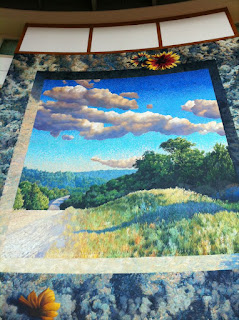




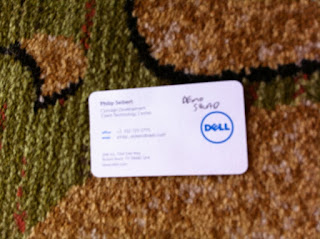





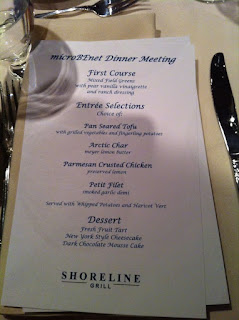



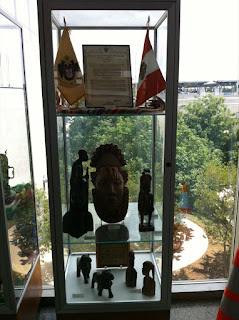
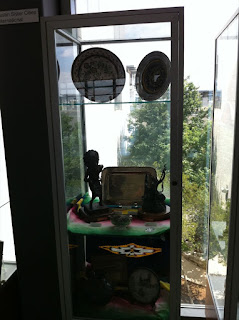
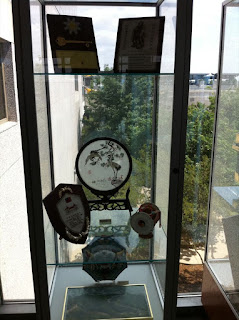



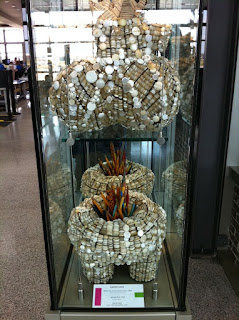


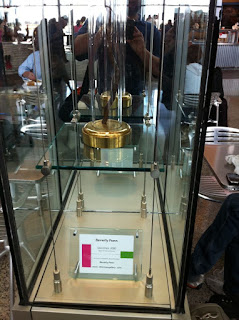

Oh my goodness! Amazing article dude! Thanks, However I
am encountering difficulties with your RSS. I don’t know why I can’t join it.
Is there anyone else having similar RSS problems? Anyone who knows the answer will you kindly respond?
Thanx!!